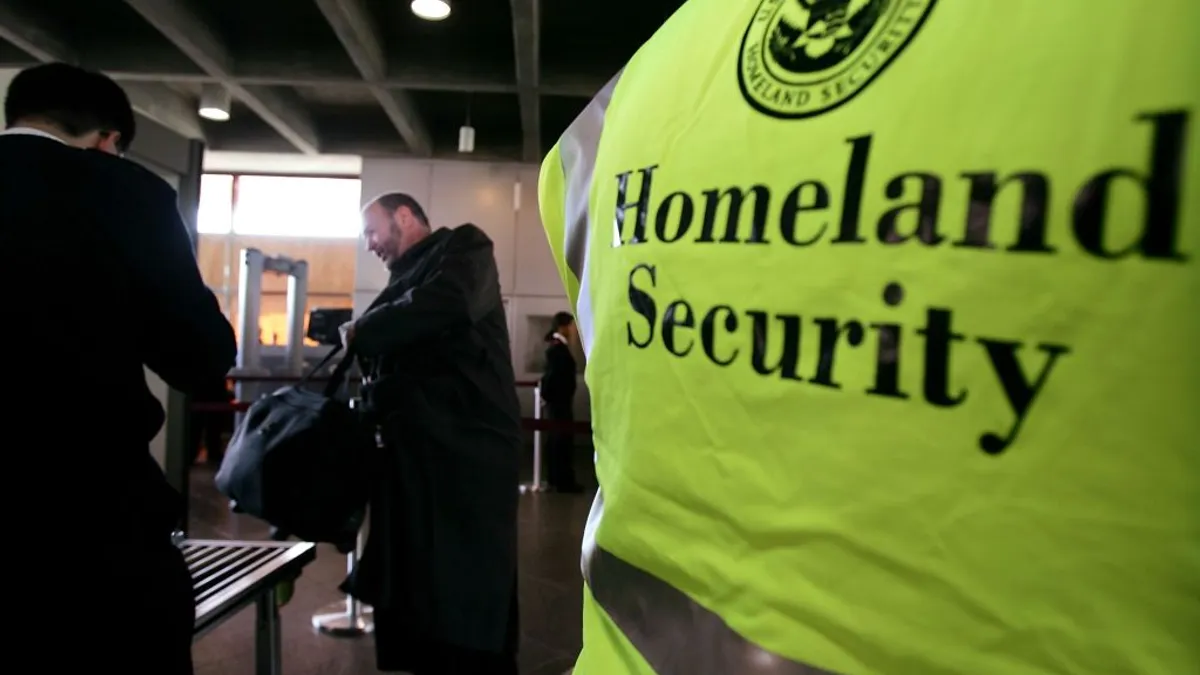Dive Brief:
- Industries that employ the majority of H-2B visa holders have accounted for nearly $1.8 billion in wage and hour violations during the past two decades, creating an environment that is likely exploitative of migrant employees and U.S. citizens who work beside them, according to an Aug. 18 Economic Policy Institute report.
- EPI pointed to more than 180,000 violations between the fiscal years of 2000 and 2021 across a list of seven industries, including amusement; construction; food services; forestry; hotels and motels; janitorial services; and landscaping services. In all, more than 1.6 million employees were owed back wages.
- EPI said its data represented violations and back wages owed to any employees in the select industries, including U.S. citizens, lawful permanent residents, H-2B workers and workers of any other immigration status.
Dive Insight:
The H-2B visa program allows employers to hire temporary, nonimmigrant workers to perform nonagricultural work. But a lack of protections makes H-2B visa holders vulnerable to exploitation, according to the EPI report. The left-learning think tank cited news reports, research from third parties and legal documents that supported this conclusion.
For example, the Southern Poverty Law Center filed a lawsuit in 2008 on behalf of H-2B visa holders from India who had been hired by a marine services company to perform restorative services along the U.S. Gulf Coast in the aftermath of Hurricane Katrina. A federal jury awarded five guest workers $14 million in compensatory and punitive damages; the jury found the parties that hired the workers engaged in labor trafficking, forced labor, fraud, racketeering and discrimination, among other violations.
There are signs that some leaders want more oversight and reform of the H-2B program and other employment visa programs. In a May letter to Sen. Jon Ossoff, D-Ga., U.S. Secretary of Homeland Security Alejandro Mayorkas confirmed that the federal government would undergo rulemaking to reform the H-2B program as well as the similar H-2A agricultural worker visa program.
Employers, meanwhile, have primarily focused their efforts on persuading federal agencies to expand H-2B visa availability, which is currently capped at 66,000 workers per fiscal year, or 33,000 workers for each half of the year. Shortages of H-2B workers have been a consistent complaint in recent years, particularly among employers that operate primarily during the summer months and similar peak seasons.
Business advocates have been particularly vocal about the need for seasonal employees in 2022. One letter to Mayorkas and Secretary of Labor Marty Walsh from the H-2B Workforce Coalition, which represents companies that employ H-2B workers, said applicants met the first-half cap for H-2B petitions earlier than ever before. The coalition asked federal agencies to release supplementals for the second half of 2022 — a request the government later obliged.
But other groups, EPI included, have called on the Biden administration to implement reforms, such as a registration system to screen and prohibit employers with a history of violations from participating in the program.
“President Biden and his administration should send a message to workers and the business community that a major reform of the H-2B program is long overdue and needs to move forward now, more than ever, so that lawbreaking employers will be prohibited from hiring through H-2B, and so migrant workers and U.S. workers in the major H-2B industries will be treated and paid fairly,” Daniel Costa, director of immigration law and policy research at EPI, said in a statement.














